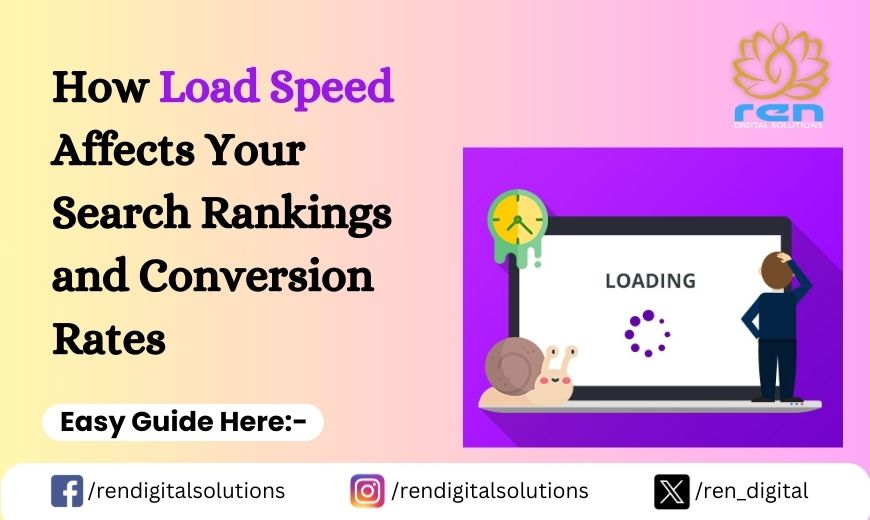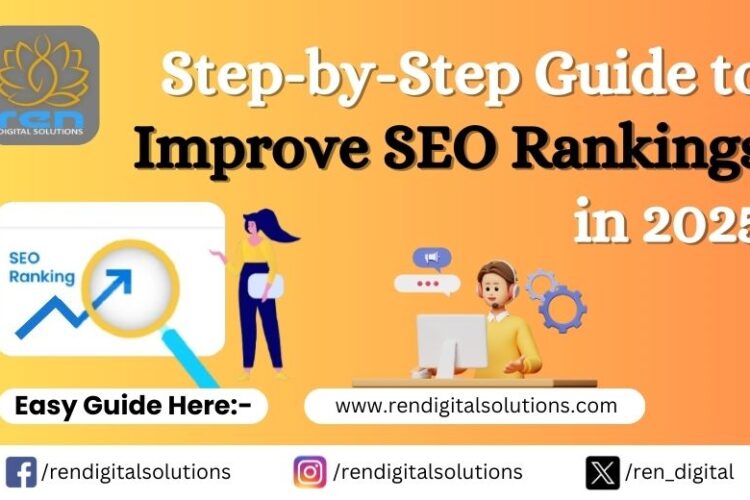
In today’s digital era, website performance plays a crucial role in online success. One of the key factors determining website performance is Load Speed. Whether you run an eCommerce store, a blog, or a business website, the time your pages take to load can make or break your online presence. Faster websites not only enhance user experience but also significantly impact search rankings and conversion rates.
Understanding Load Speed
Load Speed is the duration required for a webpage to completely load and display all its content for users. It is measured in seconds and plays a critical role in determining user engagement. The longer a page takes to load, the higher the chances of users leaving your site. Studies show that if a webpage takes more than three seconds to load, users are likely to abandon it and switch to competitors.
Google considers Load Speed a ranking factor, meaning that a slow-loading website can negatively impact search engine rankings and online visibility. Businesses looking to improve their digital presence should seek the expertise of the Best SEO Company in Ghaziabad to enhance website speed and performance.
How Load Speed Affects Search Rankings
Google’s algorithm prioritizes websites that offer a seamless and fast user experience. Here’s how Load Speed impacts your search rankings:
1. Google’s Core Web Vitals and Load Speed
Google introduced Core Web Vitals as part of its ranking algorithm, which includes three key factors:
- Largest Contentful Paint (LCP): Measures how quickly the main content of a page loads (should be under 2.5 seconds).
- First Input Delay (FID): Tracks how fast a webpage responds to user interaction (should be under 100 milliseconds).
- Cumulative Layout Shift (CLS): Measures visual stability and how elements shift unexpectedly.
If your website fails to meet these benchmarks, it can result in lower rankings on search engines.
2. Higher Bounce Rates
Slow Load Speed increases bounce rates, which negatively impacts SEO rankings. Google tracks user behavior, and if visitors leave your site too quickly, it signals that your content is not engaging, leading to a drop in rankings.
3. Mobile Friendliness and Load Speed
With Google’s mobile-first indexing, page Load Speed is even more critical for mobile users. If your website takes too long to load on smartphones, it can significantly impact search rankings. Optimizing images, leveraging caching, and using a Content Delivery Network (CDN) can help improve mobile performance.
How Load Speed Affects Conversion Rates
Website speed not only affects SEO but also influences conversion rates. A faster website leads to a better user experience, increasing the likelihood of visitors completing desired actions such as making a purchase, signing up for a newsletter, or filling out a contact form.
- Faster Websites Drive More Sales: Studies reveal that even a one-second delay in Load Speed can lead to a 7% drop in conversions. For eCommerce websites, slow loading pages can result in abandoned carts and lost revenue. Ensuring a fast and seamless checkout process is essential for maximizing sales.
- Better User Experience Increases Engagement: Users expect instant access to information. If your website loads quickly, visitors are more likely to explore multiple pages, increasing engagement and session duration. Businesses aiming for higher customer retention should prioritize Load Speed optimization with the help of the Best Digital Marketing Company in Ghaziabad.
- Slow Load Speed Leads to Customer Frustration: A website that takes too long to load creates a frustrating experience for users. They may lose trust in your brand and turn to competitors instead. Optimizing website speed ensures a smooth and pleasant browsing experience, keeping customers engaged and satisfied.
How to Improve Load Speed for Better SEO and Conversions
Improving Load Speed requires a combination of technical optimizations and best practices. Here are some proven strategies:
- Optimize Images: Large image files can slow down a website. Compress images using tools like TinyPNG or WebP format to reduce their size without compromising quality.
- Enable Browser Caching: Browser caching allows returning visitors to load your website faster by storing some data locally. This reduces the need to reload resources every time a user visits your site.
- Use a Content Delivery Network (CDN): A CDN distributes your website’s content across multiple servers worldwide, reducing latency and speeding up Load Speed for users from different locations.
- Minimize HTTP Requests: Each webpage element (images, scripts, CSS files) requires an HTTP request. Reducing the number of requests by combining CSS and JavaScript files can significantly improve Load Speed.
- Enable GZIP Compression: GZIP compression reduces file sizes, making it easier for browsers to load web pages faster. This can be enabled through server configurations.
- Reduce Server Response Time: A slow server can negatively impact Load Speed. Investing in a reliable hosting provider and optimizing server configurations can help improve website performance.
- Eliminate Render-Blocking JavaScript and CSS: JavaScript and CSS files that block rendering can slow down page loading. Asynchronous loading and deferred scripts can enhance Load Speed.
- Implement Lazy Loading: Lazy loading ensures that images and videos only load when they appear on the user’s screen, reducing initial page load time.
- Monitor Performance with Google PageSpeed Insights: Regularly test your website’s Load Speed using tools like Google PageSpeed Insights, GTmetrix, or Lighthouse. These tools provide insights and suggestions for optimization.
Why You Should Work with the Best Digital Marketing Company in Ghaziabad
Improving Load Speed requires technical expertise and continuous monitoring. Partnering with the Best Digital Marketing Company in Ghaziabad can help you implement advanced strategies to enhance website speed, boost rankings, and increase conversions. Our team of SEO experts and developers can analyze your site’s performance, identify bottlenecks, and apply the latest techniques for optimization.
Conclusion
Load Speed is a crucial factor influencing both search rankings and conversion rates. A slow website can lead to lower rankings, high bounce rates, and lost revenue, while a fast website improves SEO, user experience, and engagement. If you’re serious about growing your business online, investing in website speed optimization is a must.
Need help improving your website’s Load Speed? Contact REN Digital Solutions today to get expert SEO and digital marketing services that drive real results.



